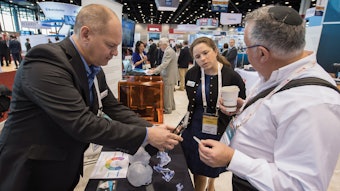Advocacy in action: Relieving the regulatory burdens
There is a renewed effort by federal policymakers to identify “regulatory relief” for physician offices, both on Capitol Hill and by the Administration’s agencies.
There is a renewed effort by federal policymakers to identify “regulatory relief” for physician offices, both on Capitol Hill and by the Administration’s agencies. For example, relief efforts by the Centers for Medicare & Medicaid Services (CMS) can be seen in changes to the Merit-based Incentive Payment System (MIPS) in its second year of implementation. In addition to recent proposals submitted to the Ways and Means Committee of the U.S. House of Representatives, listed below are significant gains the AAO-HNS has made in easing physicians’ administrative burdens—within both MIPS and other regulations—in an effort to help Academy members focus on providing quality care to patients.

Regulatory wins in MIPS final rule
- Addition of 2018 as a second “transitional year” to the program
- Expansion of the low-volume threshold exemption: ≤$90,000 in Part B allowed charges or ≤200 Part B beneficiaries
- Creation of virtual groups for 2018 reporting
- Help for small practices with an exemption from the Advancing Care Information performance category and additional bonus points
- Postponed mandate for physicians to upgrade to the 2015 edition certified EHR
- Maintenance of requirements for the number of quality measures or data completeness
Other regulatory wins
- CMS retroactively modified 2016 PQRS, MU, and VBM policies to align with MIPS. These changes will reduce penalties for physicians in 2018.*
- CMS delayed implementation of Appropriate Use Criteria.
- CMS is considering not supporting the addition of the Device Identifier (DI) portion of a medical device’s UDI to health insurance administrative claims forms.
- CMS decided NOT to finalize the proposal that would have required the public posting of:
- All Medicare advanced diagnostic imaging final accreditation survey reports
- Acceptable Plans of Corrections (POCs)**.
- Physicians can now register complaints with an EHR product directly to the federal government for action.
For more information on the Academy’s regulatory relief efforts, visit: www.entnet.org/content/regulatory-advocacy. Also, watch for an update on these efforts in the February issue of the Bulletin.
* CY2018 Medicare Physician Fee Schedule Final Rule
** CY2018 Medicare Inpatient Prospective Payment System Final Rule













